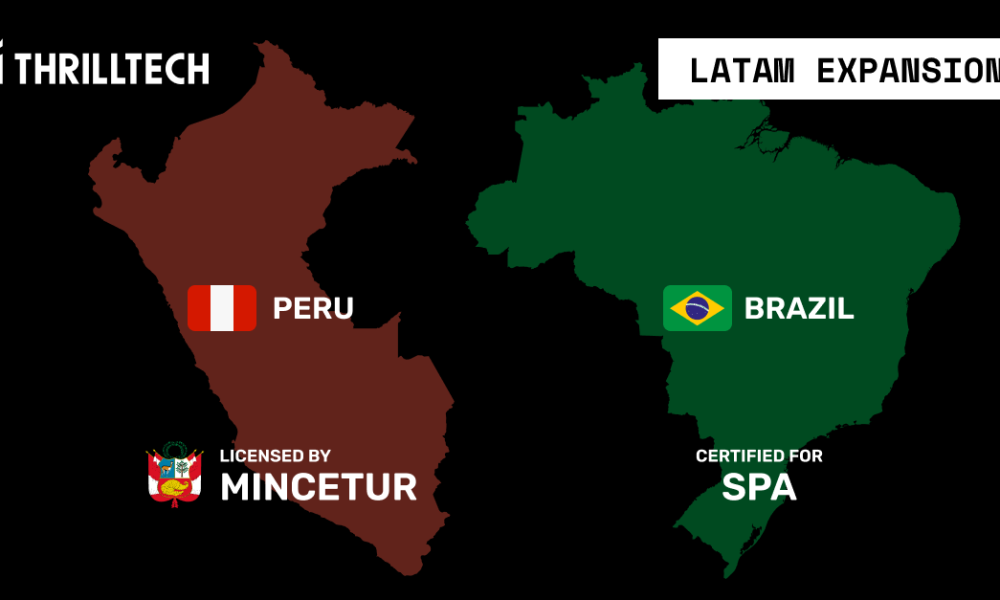Compliance Updates
Netherlands: House of Representatives Wants a Ban on Untargeted Advertising Online Games of Chance
A large majority of the House of Representatives wants a ban on untargeted advertising for online games of chance.
Outgoing minister Sander Dekker (VVD) was against the motion and indicated that it is too early for that. According to the petitioners, since the opening of the online gambling market on October 1, 2021, there has been a large increase in the number of hours people spend on online gambling sites. According to the members of parliament, consumers are bombarded in all kinds of media with a large amount of untargeted advertisements for remote games of chance.
The petitioners further argue that encouraging participation in games of chance was not the aim of legalising online games of chance, but is now in fact the result. According to the motion, this could lead to potentially major social consequences, such as financial problems and addiction problems. The large number of advertisements is disproportionate to the aim of the Remote Gambling Act, which is to realise channelisation into a legal offer.
In addition to the ban on untargeted gambling advertising, a motion has also been passed asking the government to look at personalised advertisements after visiting gambling websites, while considering a ban on personalised advertisements. The PvdA and the SP have considered that after visiting online gambling websites, people will receive online advertisements for quick credits and loans at sky-high interest rates.
Another motion asks the government to lay down in government regulations that the window times for advertising (currently after 9 p.m.) will also apply online. According to the motion submitted by the ChristenUnie, SP and CDA, the Advertising Code for Online Gaming does regulate window times for online advertising, but enforcement is cumbersome and always only after complaints.
Brazil
ThrillTech secures regulatory approvals to launch jackpots in Latam

Peru and Brazil to provide launchpad for Latam expansion as ThrillTech strengthens presence in emerging regulated markets
ThrillTech, the B2B jackpot specialist, has taken a significant step forward in its international growth strategy after securing a B2B licence in Peru and regulatory certification in Brazil.
The approvals clear the path for ThrillTech to launch its proprietary player-funded jackpot solutions in Latin America for the first time, bringing its flagship ThrillPots product to one of the world’s most exciting and emerging regions for iGaming.
Latin America has become a focal point for operators in recent years, with Brazil’s market liberalisation and Peru’s structured regulatory framework, as set out by the country’s ministry of foreign trade and tourism (MINCETUR), providing fertile ground for innovative engagement tools.
By working tirelessly to secure entry into both countries, ThrillTech is positioning itself to support operators with compliant, performance-driven jackpot mechanics that can drive revenue and enhance retention.
Peter Mares, CTO and co-founder of ThrillTech, said: “Expanding into Latin America is a milestone moment for us. The region is bursting with opportunity, but it also demands solutions that are flexible, transparent, and built to scale. With a licence in Peru and certification in Brazil, we are ready to deliver the same measurable revenue impact to operators in Latam that we’ve already proven in Europe.
ThrillTech’s products are designed to provide operators with new revenue streams through side-bet jackpots, while also offering real-time engagement mechanics via cash-only rewards.
Already integrated with multiple tier-one operators in Europe, ThrillTech is now primed to replicate that success in Latam by delivering regulator-approved solutions to local operators.
The post ThrillTech secures regulatory approvals to launch jackpots in Latam appeared first on Gaming and Gambling Industry in the Americas.
Asia
Digital gaming disruption tackled in 1st AsPac Regulators’ Forum

Regulators from across the Asia-Pacific region underscored the need to adapt to digital disruption in the gaming industry during the first-ever Regulators’ Forum held in Manila on Thursday, September 11.
In her keynote address, Philippine Amusement and Gaming Corporation (PAGCOR) President and COO Wilma Eisma said that while gaming jurisdictions across the region vary in size and maturity, they share common challenges such as cross-border transactions, rapid digitalization, and balancing economic benefits with social responsibility.
“In the Philippines, electronic gaming has become a significant growth driver and PAGCOR has responded with initiatives that ensure accountability, security, and consumer protection while allowing the industry to thrive responsibly,” Ms. Eisma said.
However, she said that digitalization, remote gaming, and emerging platforms are testing the limits of traditional oversight models.
“By exchanging best practices, aligning responsible standards, and keeping pace with innovation, we can ensure that the region’s gaming industry grows not just in size but in trust, resilience, and sustainability,” she said.
Ms. Eisma said PAGCOR has introduced reforms such as stricter advertising rules, stronger financial safeguards, and expanded responsible gaming programs but noted that the greater challenge lies in keeping pace with the rapid evolution of online and remote gaming.
The PAGCOR executive also expressed hope that the Regulators’ Forum will become an annual platform for dialogue, with an expanded edition already being planned for 2026.
“I am confident that this Regulators’ Forum will evolve into a hub for knowledge, collaboration and shared commitment,” she said. “Together, let us set the tone for gaming regulation in Asia: one that is innovative, collaborative and firmly anchored on integrity.”
The event was organized by PAGCOR and Inside Asian Gaming (IAG) and hosted by Newport World Resorts. It gathered regulators, operators, and stakeholders from across the region to tackle concerns on player protection and financial integrity, among others.
The post Digital gaming disruption tackled in 1st AsPac Regulators’ Forum appeared first on European Gaming Industry News.
Compliance Updates
MGCB Renews Licenses for Detroit’s Three Commercial Casinos, Highlighting Continued Community and Economic Impact

The Michigan Gaming Control Board (MGCB) unanimously approved license renewals for Detroit’s three commercial casinos—MGM Grand Detroit, MotorCity Casino, and Hollywood Casino at Greektown—during its regularly scheduled public board meeting.
The annual approval follows a comprehensive review of each casino’s operations, regulatory compliance, and commitment to responsible gaming practices, as required under the Michigan Gaming Control and Revenue Act. The decision ensures that Detroit residents and visitors can continue to enjoy a safe, secure, and well-regulated gaming environment.
“Detroit’s commercial casinos are not only entertainment destinations but also major contributors to the city and state economies. By renewing these licenses, the Board reaffirms its commitment to a gaming industry that promotes integrity, accountability, and community benefit. Our oversight helps ensure that patrons have a fair and responsible experience, while Michigan residents continue to see the economic value generated by casino revenues,” said MGCB Executive Director Henry Williams.
The Detroit casinos play a vital role in supporting public services through wagering and sports betting taxes. Licensees are taxed at a rate of 19% on adjusted gross receipts, with 8.1% going to the state and 10.9% to the City of Detroit, along with development agreement payments. Casinos also pay an 8.4% tax on retail sports betting qualified adjusted gross receipts and annual fees that support the state’s regulatory functions. These funds help sustain city services, economic development, and state initiatives.
The MGCB also emphasized the importance of small business participation in the casino supply chain, with measures in place to broaden opportunities for local vendors and suppliers.
Each of Detroit’s three casinos will be eligible for renewal again in September 2026.
The post MGCB Renews Licenses for Detroit’s Three Commercial Casinos, Highlighting Continued Community and Economic Impact appeared first on Gaming and Gambling Industry in the Americas.
-

 gaming3 years ago
gaming3 years agoODIN by 4Players: Immersive, state-of-the-art in-game audio launches into the next generation of gaming
-
EEG iGaming Directory9 years ago
iSoftBet continues to grow with new release Forest Mania
-
News8 years ago
Softbroke collaborates with Asia Live Tech for the expansion of the service line in the igaming market
-
News7 years ago
Super Bowl LIII: NFL Fans Can Bet on the #1 Sportsbook Review Site Betting-Super-Bowl.com, Providing Free Unbiased and Trusted News, Picks and Predictions
-
iGaming Industry8 years ago
Rick Meitzler appointed to the Indian Gaming Magazine Advisory Board for 2018
-
News7 years ago
REVEALED: Top eSports players set to earn $3.2 million in 2019
-
iGaming Industry8 years ago
French Senator raises Loot Boxes to France’s Gambling Regulator
-
News7 years ago
Exclusive Interview with Miklos Handa (Founder of the email marketing solutions, “MailMike.net”), speaker at Vienna International Gaming Expo 2018








